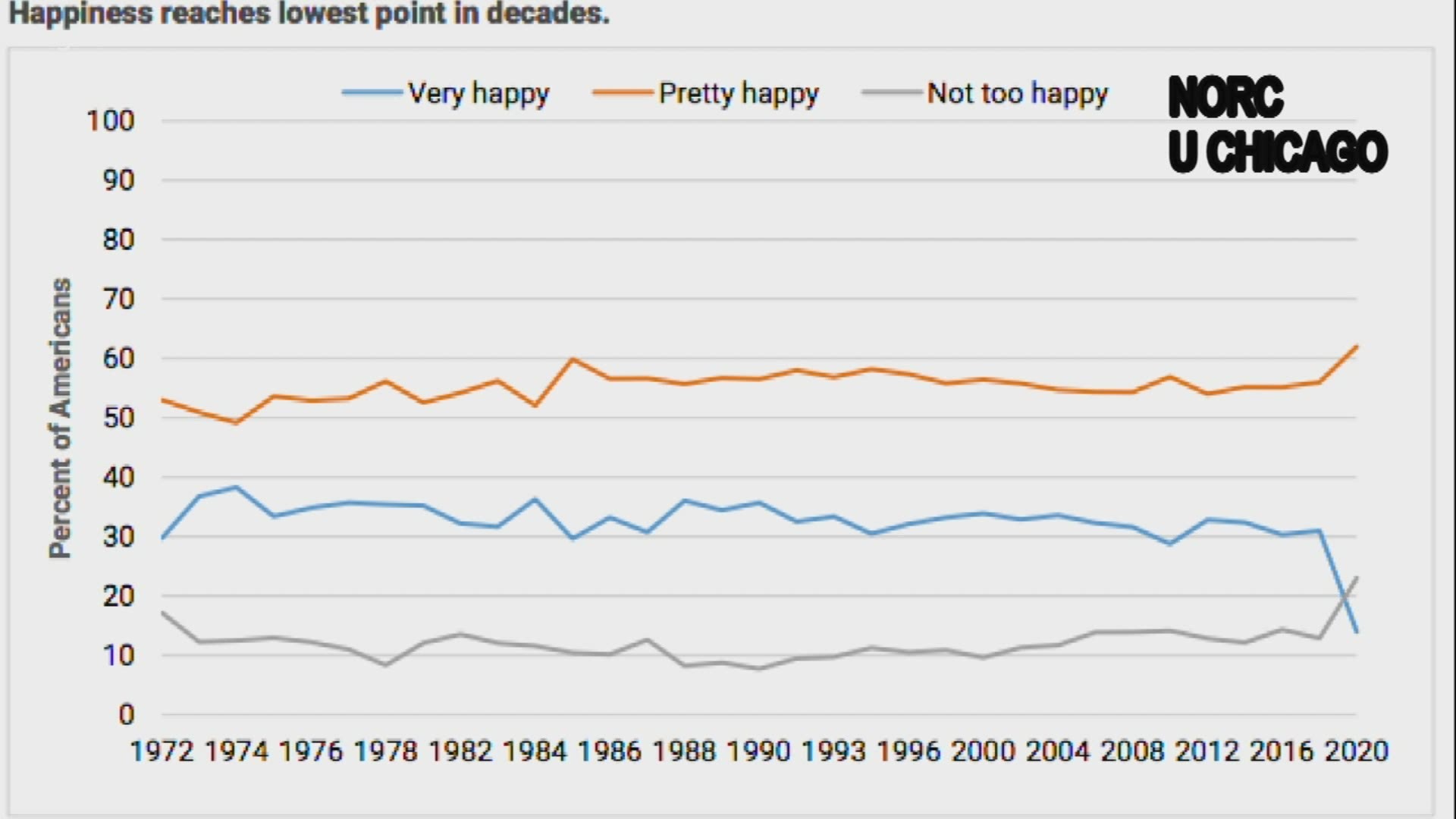BRYAN, Texas — People are unhappy.
According to a study done by the University of Chicago, Americans are the unhappiest they have been in five decades.
Social distancing and sheltering-in-place is taking a toll on people’s emotional and mental health.
NORC at U Chicago, a research center that has been studying health trends for more than 50 years discovered that the coronavirus is leaving many unhappy and bored.
“The trend is not completely surprising. Gallant did a study, I believe it was two million people, and our happiness was already in a declining phase a couple years ago, so we were unhappier than we have been since the recession. So I think we were already in a place that we were becoming more happy challenged for a variety of reasons," said Secret Society of Happy People founder Pamela Johnson.
Johnson says happiness is a personal thing, but “happiness zappers” impact everyone.
“Right now I think our biggest challenge is dealing with that happiness zapper called COVID and how it has somewhat changed our societal norms. In the middle when you’re talking about happiness, the challenge is to find the happiness in the new normal for what it is. The first thing about your mental health is recognizing it’s a unique time and it’s unprecedented and if you’re feeling consistently bad, yes ask for help, you might need to talk to someone," said Johnson.
Here in the Brazos Valley, NAMI, The National Alliance on Mental Illness has been expanding its services to people in its seven counties.
“We have had great success with moving our group meetings online, and we’ve had new people coming to us, we’re very pleased to have had the opportunity despite the conditions to open it up to people who weren’t able to come to our meetings before because of distance. Our seven county area, parts of it are considered under-served of mental health resources and so it’s been a real boost to see that we are able to help people who before couldn’t drive the distance," said NAMI Brazos Valley board member Erin Wilhite.
Moving forward past the pandemic, the organization will continue its virtual services.
“We like it. What we’ve done is we’ve purchased a large TV to put in our group meeting room, actually two of them, and when we can come back physically, we will continue to incorporate the online aspect with the groups. And that way we can reach people who can drive there and people who have connectivity and it really expands our presence and our ability to serve," said Wilhite.
NAMI can have as many as 15 in a group meeting with two facilitators present per group.
The organization still has available spots if you are interested in joining a group. It also has other resources you can refer to for your mental and emotional health.

